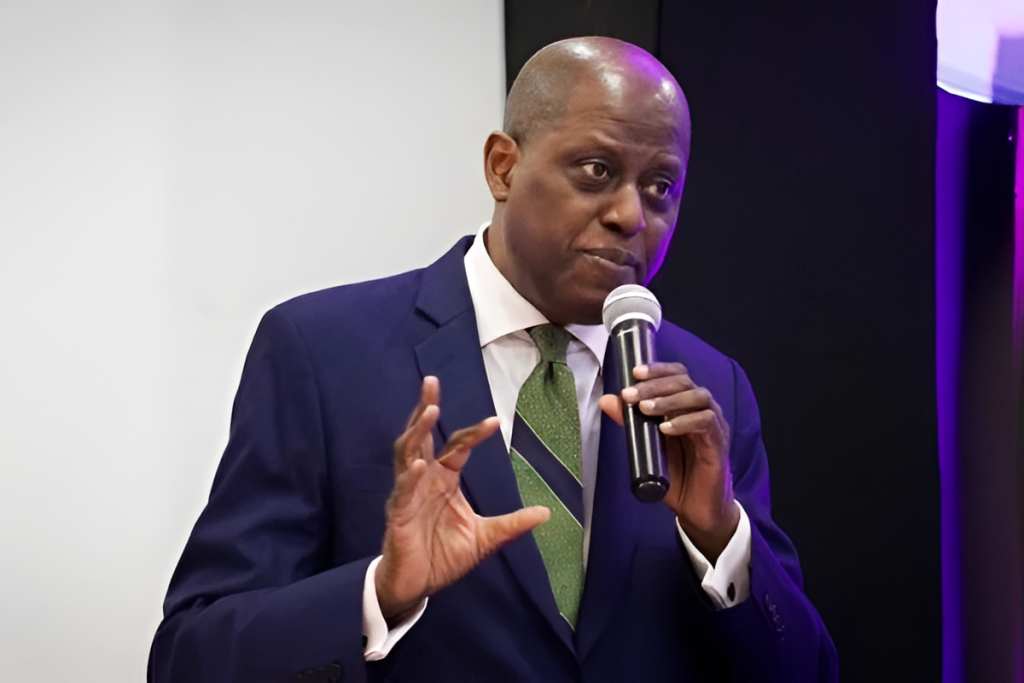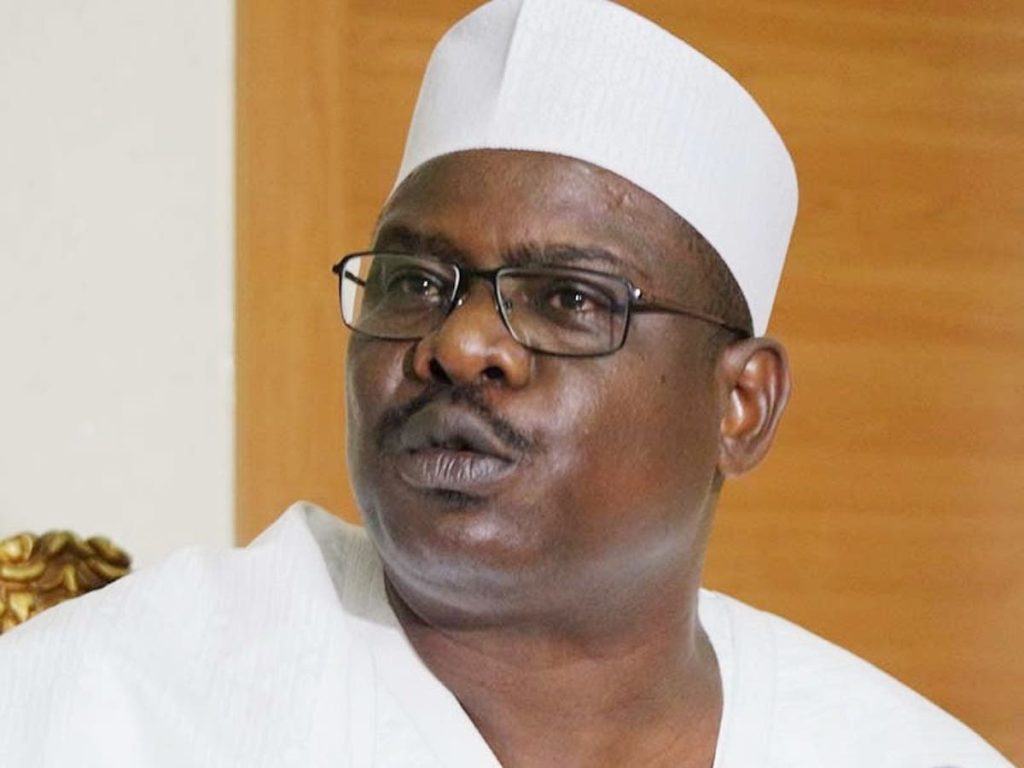In fact, what you are about to read is a two-pronged response to a two-pronged attack on President Bola Ahmed Tinubu by two notable Northern leaders. The attack by the Sultan of Sokoto was responded to by the Yoruba Nation activist, Chief Sunday Adeyemo aka Sunday Igboho, while the second attack by the Emir of Kano was responded to by Tunde Rahman, one of Tinubu’s presidential aides. Let’s take them one after the other: Sultan/Igboho first; then Emir of Kano/Rahman after that, both as they were reported in the media.
“Insecurity, poverty can’t be tackled overnight”, Igboho tells the Sultan of Sokoto. Mr. Adeyemo maintained that the blame of bad economy, perennial insecurity problem, food inflation, unemployment and youth restiveness should not be heaped on Tinubu’s administration, which is just about eight months old.
“Yoruba nation activist, Sunday Adeyemo, popularly known as Sunday Igboho, on Thursday, took on the Sultan of Sokoto, Muhammad Sa’ad Abubakar, contending that the nation’s twin challenges of insecurity and poverty cannot be resolved overnight.
“He emphasized that relevant stakeholders in governance, economy, security and other critical sectors should be committed to finding ways round the insecurity challenge and socioeconomic obstacles for Nigeria to achieve peace and steady development.

“In a statement he personally signed, in reaction to the position of Mr. Abubakar on the prevalent hardship and spate of insecurity in some parts of the country, Mr. Adeyemo stressed that President Bola Tinubu’s administration should be allowed to work out solutions capable of addressing the situation.
“Recall that Mr. Abubakar, who is also the chairman, Northern Traditional Rulers’ Council, had, during the sixth executive meeting of the council in Arewa House, Kaduna (last week) Wednesday, declared that Nigeria is sitting on a keg of gunpowder due to poverty, hardship and ravaging insecurity bedeviling the nation.
“(While) Mr. Adeyemo posited that the Sultan’s position on the current state of the nation was not out of place (he) maintained that the blame of bad economy, perennial insecurity problem, food inflation, unemployment and youth restiveness should not be heaped on Tinubu’s administration, which is just about eight months old”.
According to Igboho’s statement, “it is important for our leaders at all levels, be it religious or traditional, to demonstrate commitment to bringing solutions to the table at this crucial point in our history. Our problems as a nation are foundational.
“Nigeria had been in a precarious state in terms of bad governance, poor economy, terrorism, insecurity, irresponsive leadership for decades. I believe that the Federal Government is not unconcerned about the plight of the people and has taken steps to remedy the situation.”
“Mr. Adeyemo noted that while the nation could not gloss over the incessant attacks by rampaging herdsmen on farmlands, most especially during the immediate past regime of former President Muhammadu Buhari, thus forcing thousands of farmers to abandon farm settlements, it is thoughtful to say that the effect of farmers/herders’ clash, leading to killings (and the) destruction of farms, has been devastating on food production and agriculture value chain.
“This worrisome development has been one of the major causes of food insecurity and increase in prices of food items and commodities. We need to allow the incumbent administration to explore all measures being deployed to address inflation, foreign exchange issues, exorbitant foodstuff prices, which will soon yield results.
“The recent decision by the government to deploy troops for the protection of farmers against herders’ attacks, which are negatively affecting harvest and food productivity, will further boost the confidence of peasant farmers and agric. entrepreneurs to return to the farm. Also, the plan to set up the National Commodity Board will checkmate escalating food inflation,” the statement added.
The Sultan’s statement, though not unexpected, was reckless, provocative and inciting, to say the least. What does he mean that they can no longer restrain their people? For eight years they restrained the same people while Buhari ruined the country irreparably but cannot now restrain the people while Tinubu grapples with the ruins left behind by Buhari! Interestingly, Sunday Adeyemo’s statement, though straight to the point, was measured; it was more of that of a statesman than of an agent provocateur like the Sultan’s. Nigerians are no fools!

Titled “Olayemi Cardoso’s dilemma” the second response by Tunde Rahman started by detailing the CBN governor’s antecedents that he said eminently qualified him for his present job before stating the variables that he said would make or mar Cardoso in his new assignment: “But in the wake of the floating of the Naira, some of the variables shaping the value of the national currency, including limited production in the country as a result of insecurity, Nigerians’ high taste for imported products, dwindling exports, poor dollar remittances, humongous school fees of Nigerian students abroad and medical tourism – all of which engendered a strong demand for dollar, far outweighing supply – seem to be clearly beyond his control.
“Until these situations change for the better, no monetary policies by the CBN will work any miracle, hence Cardoso’s predicament. For instance, in his presentation at the sectoral debate organized by the House of Representatives… the CBN governor lamented that the growing number of Nigerian students studying abroad, increasing medical tourism and food imports have led to the depreciation of the Naira against the Dollar. According to him, over the past decade, foreign exchange demand for education and healthcare totaled nearly $40 billion, surpassing the total current foreign exchange reserves of the CBN, while personal travel allowances accounted for a total of $58.7 billion during the same period”
The question here is: Since we know the problems, tell us what we are doing to solve them! I read of efforts to revamp some hospitals; good! But what are we doing to reverse the “japa” of doctors and other medical staff? What are we doing to revamp our institutions of higher learning? What efforts are we making to engage university teachers and implement the MOU entered into with them?
Not done yet, Rahman continued: “Another critical yet intriguing factor but seemingly odd in Cardoso’s reckoning is the perception in some quarters of some of the decisions of the CBN, which the apex bank considers purely administrative, but which some others give strange connotations. One of such is the decision to move some departments of the bank; notably banking supervision, other financial institutions supervision, consumer protection department, and payment system management department from Abuja to Lagos.
” Indeed, until the Emir of Kano, Alhaji Aminu Ado Bayero, spoke on this issue last week, I had reckoned that the imperative of the planned relocation of some CBN departments and the headquarters of the Federal Airport Authority of Nigeria from Abuja to Lagos was evident enough. I had reasoned that the Northern politicians, including Senator Ali Ndume from Borno State, who had moved to bring down the roof over the development, were merely playing politics.
Rahman then quoted the Emir as saying: “We are indeed suspicious on why Mr. President single-handedly relocated key departments of CBN and outright relocation of FAAN to Lagos. We are receiving a series of messages from my subjects, and most of them expressed concern over the relocation of CBN and FAAN to Lagos. President Tinubu should come out clean on this matter and talk to Nigerians in the language they would understand. Do more enlightenment on this matter. I, for one, cannot tell the actual intentions of the government. We should be made to actually understand why the relocation of the CBN and FAAN offices back to Lagos.”

Rahman said many would wonder “why some members of the northern elites are losing their cool, misinterpreting this move and, perhaps inadvertently, heating up the polity on this rather elementary matter. Is their reservation altruistic? Or are they just being sincerely mistaken and reading unnecessary motives into the policy?” While I agree that the Northern leaders’ views on this issue is not altruistic but unhelpful, tribal, sectional, selfish and myopic, I disagree with Rahman that more PR by Cardoso would have changed the Northern leaders’ opinion. No amount of PR will! Rahman advised the CBN governor to “be political without being partisan”. I disagree! The CBN governor is not a politician and must resist every insidious effort to turn him into one.
However, I agree with Rahman that “those who are responding negatively to the policy (of moving some offices from Abuja to Lagos) are treating Abuja as if it belongs to the North rather than being the symbol of the entire country as the Federal Capital Territory. In that capacity, as the FCT, Abuja belongs to all and belongs to no one. In the same vein, as the economic capital and nerve center of the country, Lagos is a melting pot where representatives of virtually all ethnic and cultural groups in the country reside and earn a living. There is absolutely nothing that says that the headquarters of all federal agencies must be located in the federal capital even when economic considerations and efficiency dictate otherwise. Some federal agencies reside neither in Abuja nor Lagos at present, and their work goes on unimpeded”.
O yes! If need be, let more FG offices be moved from Abuja to Lagos and other parts of the country. Akinola Aguda, Kayode Esho, Tai Solarin and other Yoruba conscientious and eminent luminaries who thought they were being patriotic when they recommended and or supported the movement of the capital from Lagos to Abuja will squirm in their grave, seeing how the North is appropriating to themselves alone what should belong to all of us equally! Every part of Nigeria is qualified to house any agency of the federal government if we are truly the Federal Republic of Nigeria and not an appendage of the feudal North.


